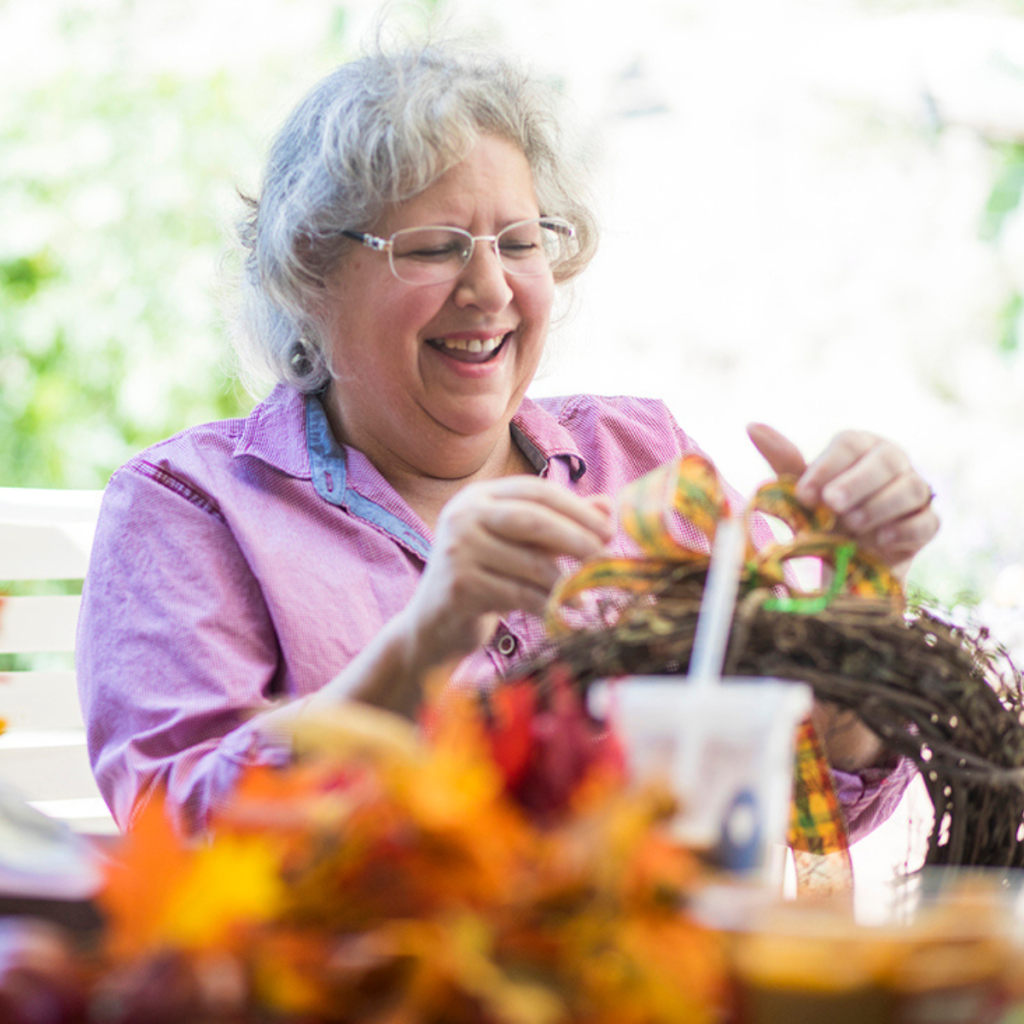We’ve all had those awkward moments when we can’t remember a word, or when we spot someone familiar but can’t put a name to the face. As our loved ones age, we may notice this type of thing happening more frequently, and we may worry that it’s more than just age-related memory loss. So how can you tell the difference between normal aging and dementia?
Alzheimer’s disease and dementia
 Many people think that Alzheimer’s disease is synonymous with dementia, but it’s actually one type of dementia. There are several others, including Lewy body, Parkinson’s, Vascular, and Frontotemporal, just to name a few.
Many people think that Alzheimer’s disease is synonymous with dementia, but it’s actually one type of dementia. There are several others, including Lewy body, Parkinson’s, Vascular, and Frontotemporal, just to name a few.
As the baby boomer generation ages, there is much more focus on Alzheimer’s and other forms of dementia. While this information is helpful, it is good to remember that 40% of people 65 and older experience some form of memory loss, which is considered a normal part of the aging process.
Differences between memory loss and dementia
There are key differences between normal age-related memory loss and dementia. The following are some differences noted by the Alzheimer Society of Canada:
- Not remembering details of a conversation or an event that took place a year ago is normal; not being able to recall very recent details is not.
- Forgetting the name of an acquaintance is normal; not recognizing or knowing names of family members could indicate dementia.
- If a loved one has an occasional lapse of memory regarding a thing or event, that is normal. If this happens frequently, it may be cause for concern.
- We all have trouble finding words occasionally, but frequent pauses and word substitutions are not normal.
- If your loved one is worried about their memory, but you aren’t noticing major problems, this is most likely age-related memory loss. If you see issues, but your loved one is not aware of a problem, there may be a memory issue.
- If you are concerned, please talk to your doctor. It is wise to get all the information you can, even if the memory issues are just age-related.
If you are concerned, please talk to your doctor. It is wise to get all the information you can, even if the memory issues are just age-related.
Frequently asked questions about dementia
 1. What are the early signs and symptoms of dementia?
1. What are the early signs and symptoms of dementia?
Early signs of dementia can include forgetfulness, difficulty finding words, getting lost in familiar places, challenges with planning and organizing, trouble with routine tasks, personality changes, and withdrawal from social activities. As the condition progresses, individuals may experience more severe memory loss, confusion, and difficulty recognizing family and friends.
2. Is dementia a normal part of aging?
Dementia is not a normal part of aging. While some cognitive decline can occur with age, dementia represents a more significant and debilitating decline in cognitive function. Many older adults maintain their cognitive abilities well into their senior years without experiencing dementia.
3. Can dementia be prevented or reduced through lifestyle changes?
Research suggests that certain lifestyle factors can play a role in reducing the risk of dementia. These factors may include maintaining a healthy diet, staying physically active, engaging in mentally stimulating activities, managing cardiovascular risk factors (such as high blood pressure and diabetes), getting enough sleep, and maintaining social connections. While these lifestyle changes may not guarantee the prevention of dementia, they can contribute to overall brain health and potentially reduce the risk. Experts recommend consulting with healthcare professionals for personalized advice based on individual health conditions and risk factors.
4. How does dementia impact a person’s cognitive abilities and daily functioning?
The impact of dementia on an individual’s cognitive abilities and daily functioning can vary depending on the specific type of dementia, its stage, and the person’s overall health. The progression and impact of dementia can vary widely from person to person. Some types of dementia progress more rapidly than others, and the rate of decline can be influenced by factors such as overall health, genetics, and the availability of appropriate care and support. However, there are some common features and effects associated with dementia, including memory loss, impaired communication, disorientation and confusion, decline in motor skills, behavioral and mood changes, wandering and safety concerns, and inability to perform activities of daily living (ADLs).
5. Is there a cure for dementia?
There is currently no cure for dementia. Since there are many different types of dementia, it’s unlikely there will ever be a single cure. However, there are treatments and interventions that can help manage symptoms, slow down the progression, and improve the quality of life for individuals with dementia. These treatments may include medications, cognitive training, lifestyle modifications, and support from caregivers and healthcare professionals.
Diagnosis of Dementia
Our unique and comprehensive philosophy and method for memory care revolve around and adjust to the individual’s inherent life rhythm. Recognizing dementia as a condition that affects the entire community, we are committed to providing assistance and knowledge to all those embarking on the dementia journey, encompassing families and communities as well.
Individuals living with Alzheimer’s and other types of dementia perceive the world in distinctive ways. Dementia encompasses more than just a memory decline. As the brain governs the entire body, substantial transformations unfold in how both the body and brain operate, as well as in the brain’s reception of information. The conception of Rhythms Dementia Services took shape to deliver tailored and empowering care for those undergoing these profound shifts. We believe that an enriching memory care or memory support community is essential for supporting each person to safely and successfully experience a life worth living.
If a loved one receives a diagnosis of dementia, there is hope—and help. The Retreat at Sunny Vista’s innovative Rhythms Dementia approach centers on each person’s natural rhythm of life and adapting to that. We also strive to educate everyone who is living with dementia, including families and communities, so that they feel supported and can support others on the dementia journey. Find more helpful information here.
Learn more about our communication strategies for people with Dementia.




